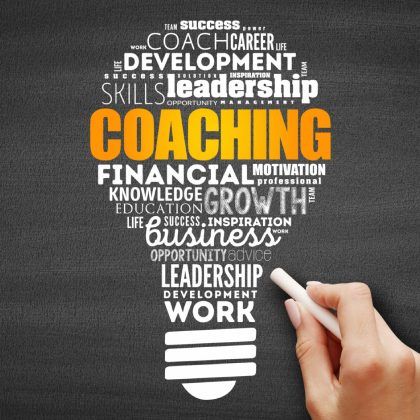How Does Executive Coaching Work?

Executive coaching plays a pivotal role in shaping effective leaders in today's dynamic business environment. It offers a personalised approach to professional development, focusing on enhancing leadership skills and fostering personal growth.
In this article, we'll explore how the executive coaching process works, from establishing goals to maintaining accountability, and discuss the key elements that contribute to its effectiveness.
Setting the Stage for Executive Coaching
Understanding how executive coaching functions begins with building a strong foundation of trust and open communication between the coach and the executive. This mutual respect enables honest dialogue and paves the way for meaningful progress.
An executive coach acts as a confidential partner, helping leaders identify their strengths and areas for improvement. By understanding personal aspirations and professional challenges, the coach guides the executive toward greater self-awareness and emotional intelligence.
Regular interactions are crucial in this process. Through ongoing conversations, the coach supports the executive in developing new perspectives and enhancing leadership styles, contributing to a more engaged and effective approach to leading their teams.
Identifying Personal Development Goals
Setting clear objectives is a cornerstone of effective executive coaching. Together, the coach and executive establish personal development goals that focus on behavioural changes and leadership growth.
These goals might include improving communication skills, enhancing emotional intelligence, or developing better conflict resolution strategies. By focusing on these areas, executives work toward becoming more effective leaders who can inspire and motivate their teams.
Aligning coaching goals with personal values and aspirations ensures that the coaching process is meaningful and resonates deeply with the executive. This alignment fosters genuine commitment to the journey of self-improvement.
The Role of Feedback in Professional Growth
Feedback is a vital component of professional growth within executive coaching. It offers insights into performance from various perspectives, fostering a deeper understanding of one's leadership impact.
By using various feedback tools, executives receive input from peers, subordinates, and superiors. This comprehensive view highlights strengths to build upon and areas that may need attention, promoting balanced development.
Consistent engagement with feedback allows executives to adapt and refine their approaches. By embracing constructive insights, leaders can enhance their self-awareness and implement strategies that lead to improved team dynamics and a more positive work environment.
Strategies for Sustained Behavioural Change
Achieving lasting change requires deliberate strategies within the coaching process. Focusing on developing new habits helps executives transform their behaviours in meaningful ways.Coaches assist leaders in setting actionable plans to reach their objectives. This includes identifying obstacles, cultivating resilience, and reinforcing positive practices that align with their growth goals.
By fostering empathy, inclusiveness, and adaptability, coaching encourages executives to evolve their leadership styles. Grasping the process of executive coaching enables leaders to adopt strategies for lasting change that benefit both themselves and their organisations.
Maintaining Accountability and Continuous Growth
Regular assessment is essential to ensure the effectiveness of executive coaching. Tracking progress keeps the executive accountable and highlights areas that may require additional focus.
Evaluations might involve reflecting on personal growth, discussing challenges faced, and celebrating successes. This ongoing process keeps the coaching engagement dynamic and responsive to the executive's evolving needs.
Maintaining accountability fosters a commitment to continuous improvement. By exploring the workings of executive coaching and staying focused on personal development objectives, executives can maximize the benefits of coaching and drive sustained growth within their leadership roles.
In Conclusion
Executive coaching offers a personalised pathway for leaders to enhance their skills and achieve professional growth. Through trust-based relationships, clear personal objectives, constructive feedback, and accountable practices, executives can unlock their full potential and foster a positive impact on their organisations.
Our expertise in executive coaching, building cultural competence, and enabling collaborative outcomes can support you on this journey. Connect with us to discover how we can assist in fostering your leadership development and achieving your aspirations.
GET IN TOUCH
Contact Us
We will get back to you as soon as possible.
Please try again later.
All Rights Reserved | The Three Cs | Privacy Policy
